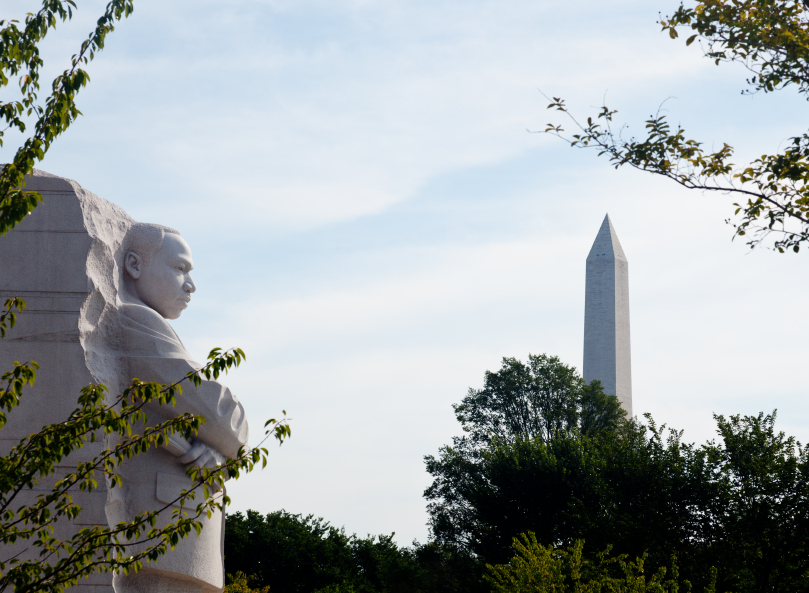AARP Hearing Center

Don Francisco’s job as the resident fifer and a history interpreter at Mount Vernon, George Washington’s historic home, allows him to share his passion for the music of the Revolutionary War.
But it also gives the Alexandria resident a chance to tell the stories of the enslaved people who lived at Mount Vernon and the role that African Americans played in that conflict.
“It’s one of the reasons why I work in Mount Vernon—to give them a voice,” says Francisco, 59, an African American whose own ancestry includes enslaved people and a Revolutionary War soldier. “It’s personal and professional.”
Francisco will be among the featured presenters in a wide-ranging series of Black History Month events—from virtual presentations to museum visits and a cemetery tour—that AARP Virginia is hosting in February.
The sessions are a way to help Virginians “learn and grow and to strengthen as a community,” says Brian Jacks, AARP Virginia’s associate state director for community outreach. The events are open to all, not just AARP members.
“We recognize that history matters and that actions and directions of the past influence where people are today,” Jacks says.
Many of the events focus less on the towering figures of African American history and more on the lives and experiences of unheralded individuals whose quiet contributions made America what it is. For example:
- The Black Pullman rail car porters and their role in the Civil Rights Movement will be the subject of a webinar set for Tuesday, Feb. 11, by railroad history scholar James Reaves.
- The African American military men who participated in the D-Day invasion will be the focus of a walking tour of the National D-Day Memorial in Bedford on Thursday, Feb. 27.
- Individuals such as Gloria R. Simon, who as a young girl was one of a few Black students sent to Lynchburg’s white schools during integration, are among the central Virginia civic leaders featured at Lynchburg’s Legacy Museum of African American History. AARP will sponsor a tour of the museum on Wednesday, Feb. 5.
Black History Month “recognizes a lot of people that otherwise would not get recognized,” says AARP volunteer Elsie Flood, 72, of Lynchburg.
As important as it is for people to learn about the contributions of Martin Luther King Jr., Ida B. Wells, Frederick Douglass and other icons, “there are unsung heroes” whose stories should also be told, says Opal Elliott, 76, of Falls Church, who has helped arrange other Black history events for AARP.
“Black history is really an opportunity to not just talk about racism and slavery,” she says. “We know those things happened, and they really inform the lives of Black people in America.... But it’s the arts for me, it’s music, it’s that block I grew up in South Philly of predominantly African Americans,” where a strong community “came together to help each other.”
She hopes the events will broaden people’s horizons and “get a different perspective from maybe what the media presents about African Americans.”
For Francisco, the history he shares can be difficult and painful. But it can also be rewarding for him and for his audiences.
“It’s actually kind of healing, and it brings about recognition,” he says. ■
Mary Dieter, a freelance journalist, spent two decades covering Indiana state policy and politics for The Courier-Journal of Louisville, Kentucky.
- 9 Fascinating Books for Black History Month
- 8 Destinations to Celebrate Black History Month
- He Started a Black Santa Agency































































